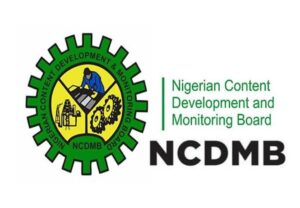
The Nigeria Content Development Monitoring Board (NCDMB) says it has partnered with 15 firms to set up projects on modular refining, gas processing, gas distribution, power generation, manufacturing, and others.
The General Manager, Corporate Communications and Zonal Coordination, Dr. Ginah O. Ginah, said this during a media workshop held in Abuja, on Wednesday.
Ginah said that 70 percent of NCDMB’s investments are in gas-based activities, especially midstream and downstream gas.
He said, “Our collaborations and stakeholder engagements constitute one of the four enablers of the Nigerian Content 10-year strategic roadmap, and we also have five key pillars.
“We are happy to report that we have recorded huge achievements in the implementation of this roadmap since we launched it in 2017 when Nigerian Content performance was at 26 percent.
ALSO READ: Akeredolu Signs N275 billion Ondo Budget
“Just two weeks ago at the Practical Nigerian Content Workshop held at Uyo, Akwa Ibom State, our Executive Secretary, Engr. Simbi Kesiye Wabote announced that Nigerian Content performance for 2022 has increased to 54 percent, surpassing the 42 percent target that was set for the year.
“Our statistics also reveal that the average Nigerian Content performance in the last five years is 44 percent, which is also beyond the set targets.”
Ginah also stated that the NCDMB is also taking deliberate steps to actualize the Federal Government’s declarations in gas and other aspects of the oil and gas value chain.
He said, “We have partnered with credible investors to develop critical projects in the sector to take Nigeria towards the goal.
“In total, we have partnered with 15 firms to set up projects covering modular refining, gas processing, gas distribution, power generation, manufacturing, and others.
READ ALSO: Keke Owners Attack LASTMA In Ojota
“It is worthy of note that 70 percent of our investments are on gas-based activities, especially midstream and downstream gas.
“Our investments underscore the importance of gas to Nigeria’s economic sustainability, apart from its role in the energy transition.
“We know for certain that gas can lead Nigeria to food sufficiency, industrialization, increase in Gross Domestic Product, and electric power sufficiency.”

